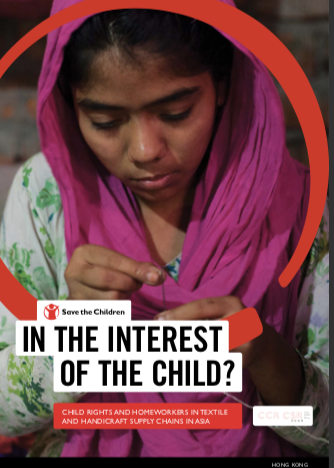This study takes a child rights lens to the topic of work in home-based and small workshop settings in Asia. As home-work often is associated with child labour, the topic is picked up rather gingerly, where at the same time some industries are infamous for it, for example, the textile, leather or carpet industry. There is indeed an increased risk for children of homeworkers to get involved in homework, because the work is happening at their homes. However, the picture is not black and white and home work certainly is not to be equated with child labour. In fact, there is little information available on the impact of home-based production on children or on child rights in general.
Therefore, Save the Children initiated this study in order to shed light on a situation that, despite being widespread across the continent, has so far proven difficult to analyse due to its hidden nature.The survey was conducted by the Centre for Child Rights & Corporate Social Responsibility (CCR CSR) with the support of Nest and brand partners. It aims to understand what situations and conditions might increase the likelihood of children getting involved in work. And it perceives both the negative and positive impact that home-based and small workshop-based work has on children. Given that, the study aims to present best practices for companies who are either directly or indirectly sourcing from homeworkers.

